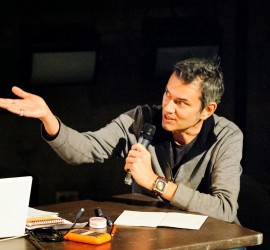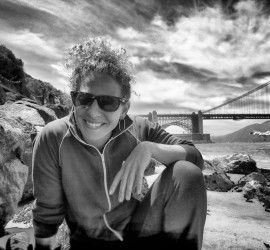Living Time: Art and Life After ‘Art-Into-Life’: Andre Lepecki
My aim is to investigate how the works and writings of Hélio Oiticia and Lygia Clark re-articulate the problem of temporality and the problem of “life.” I am proposing that there is both a rigor and a novelty in their definitions of both terms, one that bypasses accepted notions that the privileged temporality of performance and dance is the ephemeral, and that the life element in performance and dance is the living presence of bodies in participation.
Continue to read…


